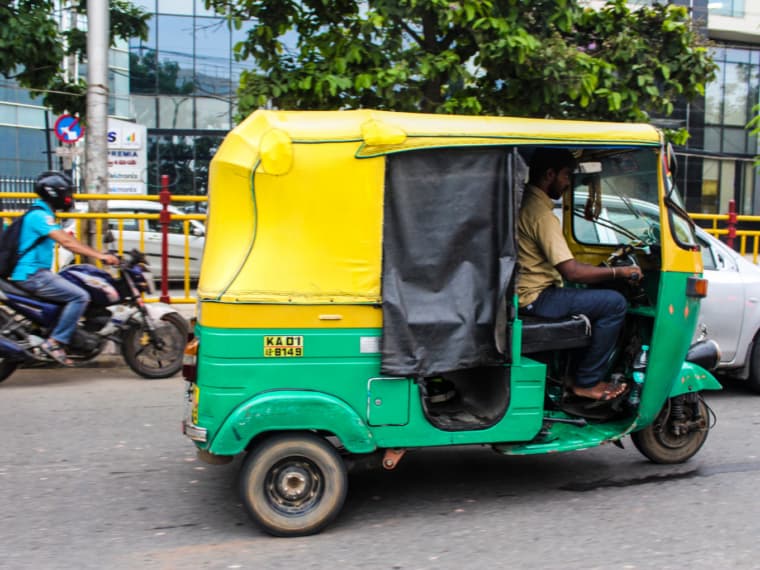
Rapido is charging a minimum fare of INR 71 for users availing the Auto Plus service, which stands in contravention of auto fares fixed by the Karnataka HC for aggregators
Rapido said the Auto Plus rides are priced 25%-30% higher than the regular auto service, and that the ride tariffs differ based on various factors
As per rules, INR 30 is chargeable for the first two km, and INR 15 for subsequent kms. However, ride-hailing companies cannot charge 10% more than the rate, excluding 5% GST
Ride-hailing startup Rapido
As per Moneycontrol, Rapido is charging a minimum fare of INR 71 for users availing the Plus service as against the minimum charge of INR 46 for regular customers. While Inc42 could not independently verify the data, both pricing slabs are in contravention of auto fares fixed by the Karnataka High Court (HC) for aggregators.
In its October 2022 order, the HC barred ride-hailing platforms from charging 10% more than the rate affixed by local authorities, excluding the 5% goods and services tax. (GST). The state transport officials, in November 2021, fixed a minimum fare of INR 30 for the first two km, and the subsequent distance would be charged at the rate of INR 15 per km.
As per the report, the minimum regular auto fare of INR 46 comprises a ride fare of INR 36 and an additional pickup fee of INR 10. However, the app did not provide a breakdown of the minimum INR 71 fare chargeable to its premium auto customers. A message on the app read that the pickup fee from ‘Auto Plus’ rides is completely passed on to drivers.
Responding to this, a Rapido spokesperson told the publication that the Auto Plus offering is priced 25%-30% higher than the no-frills regular auto service and the ride fare differs based on various factors.
“In Bengaluru, the minimum fare for Auto service (what the company calls its regular offering) is INR 30 per km for the first 2 km, with additional charges of INR 15 per km applying thereafter. Auto Plus charges will be 25-30% higher than Auto… Rates may vary based on factors such as time of day, demand, and ongoing promotions or discounts,” said a company representative.
The move has yet again ignited concerns of overcharging by ride aggregators. A similar standoff in October last year led the local transport department to issue a ban on auto rides and direct ride-hailing companies to apply for a separate licence.
Sticking to their guns, the transport authorities have reiterated that apps are prohibited from charging fares exceeding those mandated by the Karnataka HC last year.
“Rapido is operating services illegally. They cannot charge more than INR 35 minimum fare for auto rickshaw services. We will book cases against drivers if they charge more,” additional transport commissioner L Hemanth Kumar reportedly said.
Meanwhile, Rapido said that the premium service was first introduced in Hyderabad in September. The offering was eventually rolled out in Bengaluru earlier this month as a pilot initiative to test the ground before full scale launch.
As per the ride-hailing company, it has so far onboarded more than 10,000 drivers under the Auto Plus initiative in Bengaluru, with plans to expand the service to more than 50,000 drivers. The company touts Auto Plus as an upgraded version of the regular auto service offered by it. The move will enable the startup to shore up reliability, and offer financial incentives to drivers to curb ride cancellations.
This comes a few weeks after reports surfaced that the Karnataka government was looking at banning carpooling in Bengaluru. While the state transport minister Ramalinga Reddy later rubbished any such reports, he highlighted that none of the carpooling platforms had sought permission from authorities for operating in the city.
The move almost sparked another flashpoint between cab aggregators and state authorities. As ride-hailing companies continue to be in the dock for purportedly overcharging customers, it remains to be seen what next course of action is adopted by the state authorities.




 Fintech
Fintech Travel Tech
Travel Tech Electric Vehicle
Electric Vehicle Health Tech
Health Tech Edtech
Edtech IT
IT Logistics
Logistics Retail
Retail Ecommerce
Ecommerce Startup Ecosystem
Startup Ecosystem Enterprise Tech
Enterprise Tech Clean Tech
Clean Tech Consumer Internet
Consumer Internet Agritech
Agritech




























